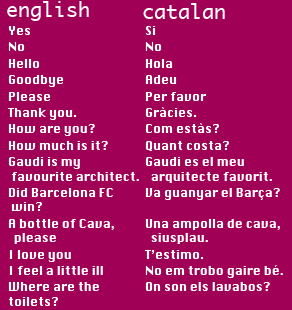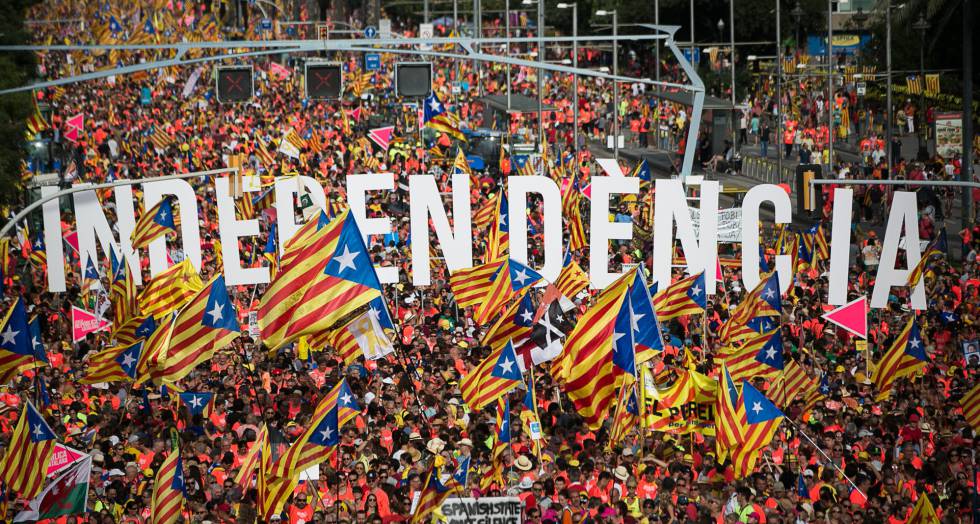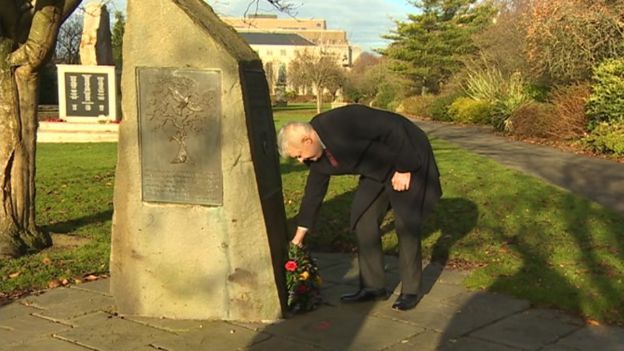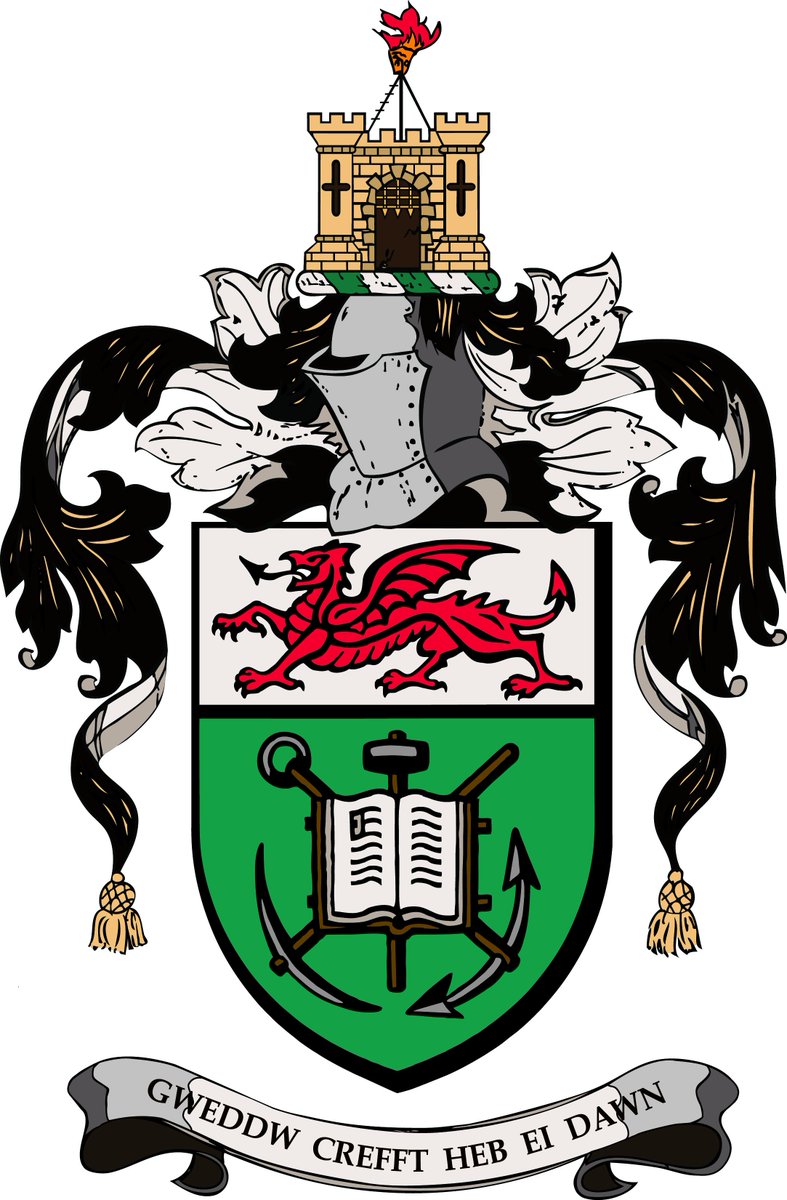The rain is falling straight in the breezeless
air. The blue terrace tiles gleam with
damp reflected depth. I can hear the
gentle wash of the sea and the occasional car.
The sky, as always, seems to have that particular bright dullness that I
have come to expect on rainy days in Catalonia, always offering the promise of
a glimpse of the sun some time later in the day.
It may just be me and my over romanticised sensitivity
to the ‘significance’ of today, but the rain and the broken silence seem like
examples of the pathetic fallacy as
the depressing weather reflects the division and tension in what is a day of
possible futures in Catalonia today.
Today is the referendum on Catalan Independence, where
we have been asked to make a simple choice between the status quo and the
proclamation of an Independent Catalan Republic.
The right wing minority government of PP with their
leader Mariano Rajoy have been spectacularly inept in their handing of
Catalonia, and today has provided yet another vibrant example of their idiocy.
When the President of Spain was forced to come to
court a couple of months ago and give evidence in a wide ranging corruption
trial he defended himself by saying that he was responsible for the ‘political’
direction of the party and not the financial side of the organization. Leaving aside the unlikeliness of such a
position for a moment, let’s concentrate on what he said he was responsible
for: politics.
The one thing lacking throughout the lead up to the
calls for a referendum and its implementation was political imagination. PPs response to anything Catalan is always
‘No!’
You could take the dissatisfaction with Catalonia’s
position in relation to the nation of Spain all the way back to 1714 and the
Treaty of Utrecht when Catalonia supported (with British encouragement) the
‘wrong’ side in the War of the Spanish Succession when the preferred Catalan
and British choice of the Hapsburg claimant was defeated by the Bourbon. The defeat of the Catalan’s choice of monarch
led to loss of status, land and independence.
But the Catalans are a resourceful people and the loss
of grain growing lands on the other side of the Pyrenees forced them to
reconsider their mercantile basis and they developed the cloth trade, remnants
of which you can still see in the corrugated roofs of obsolete factories in
cities like Terrassa.
The Civil War in the 1930s changed everything and,
while Catalonia fought hard and long for Republican ideals it was eventually
defeated by Franco’s fascist forces aided and abetted by the axis powers of
Nazi Germany and Fascist Italy.
To the eternal shame of the Allied Powers, at the end
of the Second World War Franco was allowed to stay in power as a perceived
buttress against Communism and he lived on until the 1970s when he finally died
and handed over the state to his preferred heir, the restored king.
Democracy and a new Constitution followed and the
country started the transition from Fascism to Democracy.
We have now had some 40 years of democracy and the
faults in the Constitution are beginning to show.
Justice in Spain is political. The separation between the Executive,
Legislative and Judicial is, to put it mildly, hazy. Too many judges are political appointees and
those institutions that should be independent such as Constitutional and
Supreme Courts are seen merely as an extension of the ruling party’s demesne
rather than defenders of individual citizens rights.
Catalonia’s attempts to gain a more favourable
arrangement with the central government centres on the Statute of Autonomy that
was reformed in 2006, endorsed by the Catalans in a referendum and then
rejected as ‘unconstitutional’. This
rejection has exacerbated Catalonia’s feelings of injustice and increased
support for independence. Massive
demonstrations in Barcelona have left the central minority government of PP
unmoved and they have contented themselves with a steady rejection of anything
meaningful that the Catalan government has offered as a basis for negotiation.
For PP and their lackeys in the right-wing Cs party, any
discussion about a referendum leading to independence was a no-go area.
In spite of clear indications that the movement
towards a separate republic of Catalonia was growing, the central government
showed itself to be flat-footed, unimaginative, arrogant and profoundly
un-political.
PPs solution to the calling of the referendum was to
declare that it would be illegal. They
prompted their friends in the other branches of government to pronounce on the
illegality and unconstitutionality and then they sat back and proclaimed that
the referendum would not take place.
Their complacency, arrogance and unreality merely
provided fuel for the movement to free Catalonia from Spain.
I still maintain that this could have been
prevented. A few elections ago, the parliamentary
majority of PP was wiped out. PSOE (the
rough equivalent of The Labour Party) and Podemos (a new left wing party) could
have formed a government. Neither of
these parties was in favour of a break up of Spain, though Podemos conceded
that allowing Catalonia a referendum was reasonable.
In a ‘what if’ situation, the two parties (with a
little help from odds and ends of the left
in parliament) could have granted a referendum some years in the future and
then worked to make the Statute of Autonomy for Catalonia more like that for
the Basque Country. It could then have
been put to the Catalan people.
It has been estimated that around 48% of the voters in
Catalonia support independence with 50% against. Almost 80% of Catalans wanted a binding vote
on independence. I maintain that, given
the number of ‘Spanish’ people living and working in Catalonia, together with
the large ex-patriot community, it probably would have been possible to present
a re-worked relationship to the electorate and manage to get a convincing majority
to stay with Spain.
That agreement between the parties did not
happen. The statistics refer to the
past. The actions of PP and the contempt
that they have shown to Catalonia mean that the situation now is very
different.
The right wing parties of PP and Cs, together with the
‘Labour’ party of PSOE all urged their followers to take no part in the
referendum. They all proclaimed the
referendum as illegal and undemocratic.
All the opposition has played into the hands of the independence
movement. I myself (though I have no
vote in this national election) have moved from being supportive of a united
Spain to moving to a clear preference for the formation of the Independent
Republic of Catalonia.
In the lead up to today and the referendum, the
government of Rajoy and PP has gone to extraordinary lengths to stop the vote.
They have arrested members of the Catalan
government. They have drafted in
thousands of Spanish National Police to Catalonia. They have raided print works and confiscated
ballot papers. They have searched
factories to discover the production points for ballot boxes. They have closed down web sites. They have threatened mayors who have
indicated that they will hold the referendum.
They have locked schools where voting booths were to be set up. They have waged a war of disinformation. They have taken ballot boxes. They have threatened and blustered and
lied.
And they have failed.
Today I drove Toni to our local heath centre and there
he voted and I am proud to say that I drew the cross in the box indicating that
we are in favour of the founding of the new country of Catalonia, independent
of Spain and a Republic.
We first went to vote at lunchtime, but the scenes
outside the centre were crowded and chaotic.
There were police there, but they were doing no more than observing and,
as in any election, available to sort out any trouble. There was no intimidation.
We returned later in the afternoon. Crowds of people were there and they filled
all the floors of the medical centre. We
had to wait a little while for the hidden ballot boxes (they had been moved to
prevent their being taken by the police) reappeared and voting was able to go
ahead.
That was not the situation throughout Spain and any
glance at the news will show you the sometimes horrific scenes that illustrate
what appears to be the gratuitous violence of the Spanish National Police
against unarmed people queuing to vote.
OAP baton whipped, punched, kicked.
Voters thrown downstairs. Rubber
bullets (illegal in Catalonia) used against voters. And the government in Spain has said that the
actions of the Spanish National Police have been ‘proportionate’.
The silence from the EU has been deafening about what
appear to be attacks orchestrated by a government against its own people who
are trying to vote. I fully support
those people and organizations who have started proceedings in the European
Parlimant against the apparent violence of the Spanish National Police and the
actions of the Spanish State.
As I type, the polling stations have been closed fro
two hours. Results from the smaller
settlements in Catalonia are beginning to come in. People appear to have voted by the million. If that is the case, then the referendum has
produced a result that can be taken further.
Given everything that has been done by the central government to block,
hinder and stop this vote any total above a couple of million is a triumph.
Given the apparent violence of the National Police;
the failure of the government to stop what they called an illegal referendum
taking place; the complete inability of the President to lead his party and the
government; the numbers of people who voted in Catalonia - the consequent
actions should be:
1
Rajoy must
resign.
2
A General Election
must be called
3
Catalonia must
proclaim its independence
These are very interesting times to be living in Spain
and especially in Catalonia. It is now
time to see whether our political masters have the wits and intelligence to
live up to a new set of exciting possibilities and remake a broken country.







